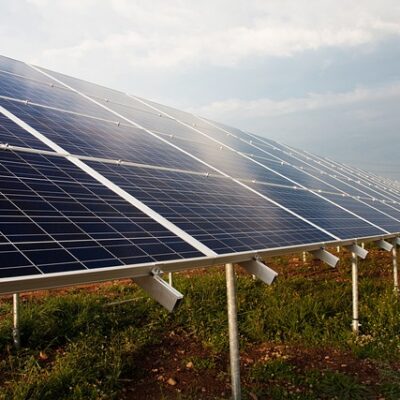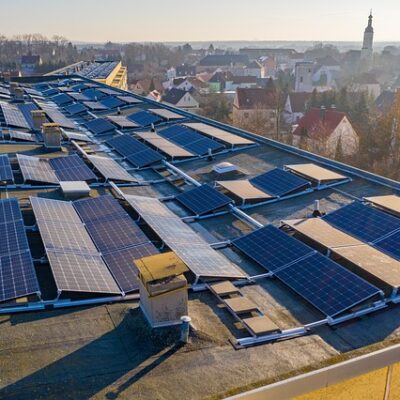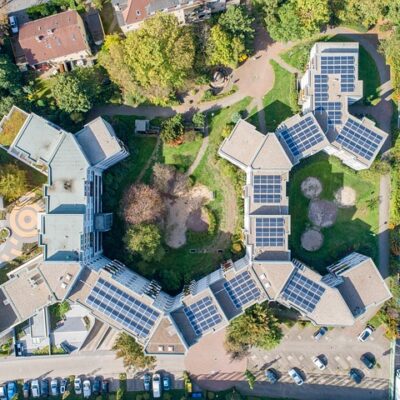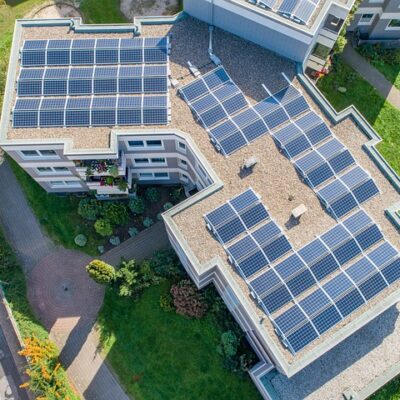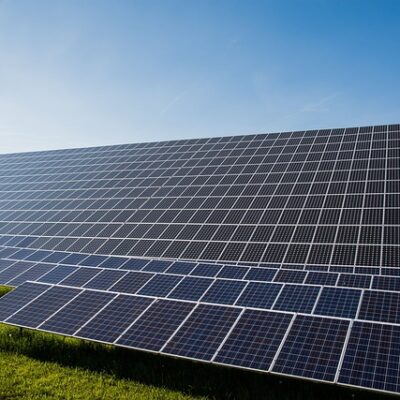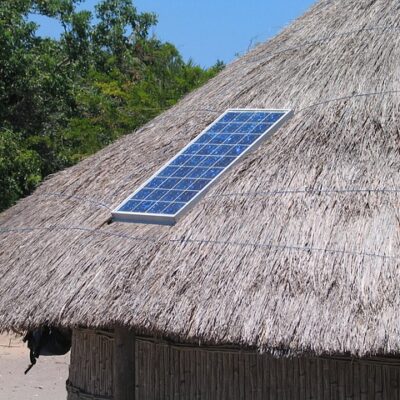Mini/Micro Grid Consulting, Sales & Installation
We consult, sell, install and maintain Mini/Micro Grids in Nigeria & Africa
Mini/Micro Grid Sales & Installation In Nigeria & Africa
Global Locations
Phone: +234 808 0888 162
Email: [email protected]
Address: 17/21, Akinsanya Street, Ojodu Berger, Lagos.
Hours: Mon-Fri: 9am – 4pm
Email: [email protected]
Address: 17/21, Akinsanya Street, Ojodu Berger, Lagos.
Hours: Mon-Fri: 9am – 4pm
Download Brochure
Our Service To You
With Ground Zero Africa Industries' renewable energy solutions, you can successfully switch to clean and sustainable energy with our comprehensive mini/micro grid solutions.
Our experienced team specializes in the sales, installation, and maintenance of top-quality mini/micro grids, so you can enjoy lower energy costs, reduced carbon footprints, and experience reliable power supply.
Embrace the future of energy with our trusted mini/micro grid products and services which can be deployed anywhere in Nigeria or Africa.
Our experienced team specializes in the sales, installation, and maintenance of top-quality mini/micro grids, so you can enjoy lower energy costs, reduced carbon footprints, and experience reliable power supply.
Embrace the future of energy with our trusted mini/micro grid products and services which can be deployed anywhere in Nigeria or Africa.

What is A Mini/Micro Grid?
A mini/micro grid refers to a localized power distribution system that operates independently or in conjunction with the main electrical grid. It typically serves a smaller geographic area, such as a community, neighborhood, or a cluster of buildings.
In a mini/micro grid, electricity is generated from various distributed energy sources, such as solar panels, wind turbines, diesel generators, or small-scale hydroelectric systems. These sources are often integrated with energy storage technologies, such as batteries, to ensure a stable and continuous power supply.
The mini/micro grid allows for decentralized energy production and consumption, reducing reliance on the centralized grid and promoting energy self-sufficiency. It can provide electricity to areas where the main grid is unreliable, inaccessible, or nonexistent, thereby improving energy access in remote or underserved regions.
The operation of a mini/micro grid is facilitated by a control system that manages the generation, distribution, and consumption of electricity within the network. It optimizes power flow, monitors energy demand, and ensures system stability. Depending on the configuration, mini/micro grids can operate in grid-connected mode, where they interact with the main grid, or in islanded mode, where they function autonomously without any connection to the grid.
Mini/micro grids offer several advantages, including:
1). Energy Independence: Localized power generation reduces dependence on the main grid and vulnerability to grid disruptions or outages.
2). Enhanced Reliability: The distributed nature of mini/micro grids improves the reliability of electricity supply, as a failure in one area does not affect the entire system.
3). Renewable Integration: Mini/micro grids are well-suited for integrating renewable energy sources, allowing for increased utilization of clean and sustainable power generation.
4). Cost Savings: By utilizing local energy resources and reducing transmission losses, mini/micro grids can potentially result in cost savings compared to relying solely on the main grid.
5). Community Empowerment: Mini/micro grids can empower communities by providing them with control over their energy supply, fostering local economic development and resilience.
Mini/micro grids are versatile and adaptable, offering a flexible solution for diverse energy needs, from rural electrification projects to powering critical infrastructure during emergencies. They represent a pathway to a more decentralized and resilient energy future.
A mini/micro grid refers to a localized power distribution system that operates independently or in conjunction with the main electrical grid. It typically serves a smaller geographic area, such as a community, neighborhood, or a cluster of buildings.
In a mini/micro grid, electricity is generated from various distributed energy sources, such as solar panels, wind turbines, diesel generators, or small-scale hydroelectric systems. These sources are often integrated with energy storage technologies, such as batteries, to ensure a stable and continuous power supply.
The mini/micro grid allows for decentralized energy production and consumption, reducing reliance on the centralized grid and promoting energy self-sufficiency. It can provide electricity to areas where the main grid is unreliable, inaccessible, or nonexistent, thereby improving energy access in remote or underserved regions.
The operation of a mini/micro grid is facilitated by a control system that manages the generation, distribution, and consumption of electricity within the network. It optimizes power flow, monitors energy demand, and ensures system stability. Depending on the configuration, mini/micro grids can operate in grid-connected mode, where they interact with the main grid, or in islanded mode, where they function autonomously without any connection to the grid.
Mini/micro grids offer several advantages, including:
1). Energy Independence: Localized power generation reduces dependence on the main grid and vulnerability to grid disruptions or outages.
2). Enhanced Reliability: The distributed nature of mini/micro grids improves the reliability of electricity supply, as a failure in one area does not affect the entire system.
3). Renewable Integration: Mini/micro grids are well-suited for integrating renewable energy sources, allowing for increased utilization of clean and sustainable power generation.
4). Cost Savings: By utilizing local energy resources and reducing transmission losses, mini/micro grids can potentially result in cost savings compared to relying solely on the main grid.
5). Community Empowerment: Mini/micro grids can empower communities by providing them with control over their energy supply, fostering local economic development and resilience.
Mini/micro grids are versatile and adaptable, offering a flexible solution for diverse energy needs, from rural electrification projects to powering critical infrastructure during emergencies. They represent a pathway to a more decentralized and resilient energy future.
Key Questions & Answers
Some of the key questions and answers you may need are below:
Our trade process spreads across CIF and FOB depending on the buyer's preference.
Here's what they entail:
1). Ex Works:
Ex Works means that the seller shall deliver the goods as soon as they are made available to the buyer at the seller's premises or other designated premises (e.g. factory, plant, warehouse, etc.). The seller shall not be obligated to load the goods onto a collecting vehicle or to clear the products for export.
2). Cost Insurance and Freight (CIF): Here, the seller will handle everything from loading the vessel, paying for insurance, and sending the product to wherever the buyer wants it delivered.
3). Freight On Board (FOB): Here, the seller pays for the transportation of the goods to the port of shipment, plus loading costs, while the buyer pays the cost of marine freight transport, insurance, unloading, and transportation from the originating port to the final destination.
Here's what they entail:
1). Ex Works:
Ex Works means that the seller shall deliver the goods as soon as they are made available to the buyer at the seller's premises or other designated premises (e.g. factory, plant, warehouse, etc.). The seller shall not be obligated to load the goods onto a collecting vehicle or to clear the products for export.
2). Cost Insurance and Freight (CIF): Here, the seller will handle everything from loading the vessel, paying for insurance, and sending the product to wherever the buyer wants it delivered.
3). Freight On Board (FOB): Here, the seller pays for the transportation of the goods to the port of shipment, plus loading costs, while the buyer pays the cost of marine freight transport, insurance, unloading, and transportation from the originating port to the final destination.

We Are Ready To Take Your Order
We ensure that the most critical industrial raw materials ranging from ithium ores like spodumene, lepidolite and amblygonite to the supply of tantalite, silica sand and much more commodities required for manufacturing in the renewable energy space, are delivered on time, every time. We also ensure that we deliver the most efficient and powerful renewable energy solutions to our clients for their vast array of projects
Quick Contact
If you have any questions or need help, please contact our team.
17/21, Akinsanya Street, Ojodu Berger, Lagos, Nigeria
Become A Partner
©2023 Ground Zero Africa Industries, All Rights Reserved.



